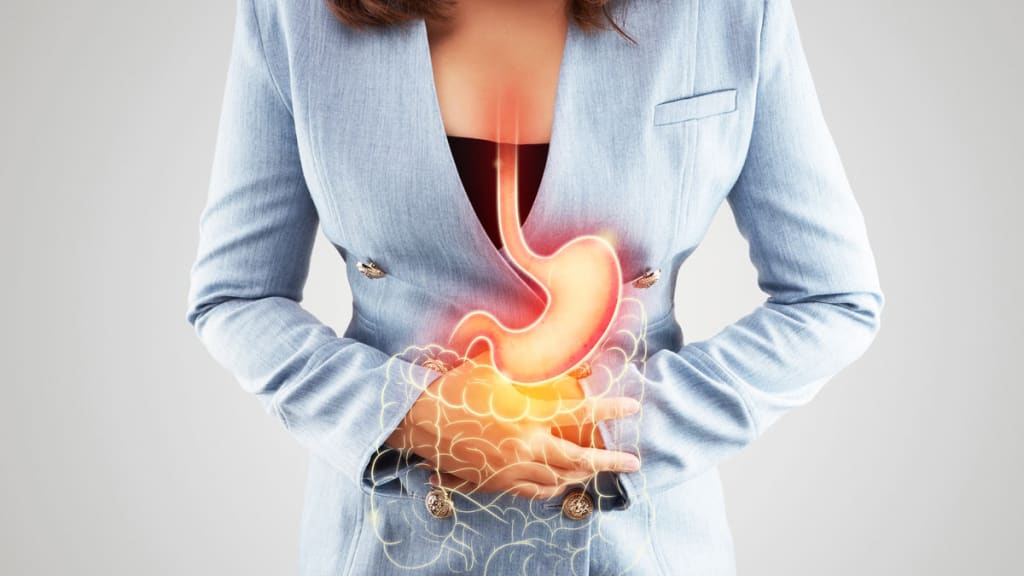Unlocking Relief: Comprehensive Strategies for Coping with Constipation
Constipation is a common digestive problem that may interfere with our daily activities and have an influence on our overall health. Constipation, which is defined by infrequent bowel movements, difficulty passing stools, or feeling of incomplete evacuation, can cause pain and potentially more serious health concerns if left untreated.

Constipation is a common digestive problem that may interfere with our daily activities and have an influence on our overall health. Constipation, which is defined by infrequent bowel movements, difficulty passing stools, or feeling of incomplete evacuation, can cause pain and potentially more serious health concerns if left untreated.
While constipation is acceptable sometimes, persistent constipation necessitates attention and lifestyle changes. This article delves into an extensive guide, providing 14 effective tips to help you cope with constipation and foster a healthier digestive system.
1. Hydration is key
Water is essential in softening stools and making them easier to pass. Dehydration can cause dry, hardened feces, worsening constipation. Aim to drink eight 8-ounce glasses of water each day. If you engage in activities that induce fluid loss, such as exercise, consider increasing your intake. Herbal teas and water-rich foods such as watermelon can aid in hydration.
2. Fiber-rich diet
Dietary fiber is necessary for regular bowel motions. Soluble fiber absorbs water, producing a gel-like consistency that softens feces, but insoluble fiber adds volume to the stool, allowing it to travel through the digestive tract more easily. To avoid bloating or gas, gradually increase your fiber intake. Whole grains, fruits, vegetables, legumes, and nuts are high in fiber, which can help prevent and treat constipation.
3. Establish a regular restroom routine
Creating a regular restroom routine can train your body to prepare for bowel movements at specified times. Try to schedule a restroom visit every day, especially after a meal. The gastrocolic reflex, the body's natural waste elimination response, is frequently most active after eating. Use this natural mechanism to enhance regularity.
4. Regular exercise
Exercise is not only beneficial to one's general health, but it may also help promote bowel movements. Physical activity keeps the muscles in your intestines active, increasing digestion's natural rhythm. Even 30 minutes of brisk walking every day can have a substantial effect. Find an activity that you like and include it in your daily routine to promote digestive tract health.
5. Probiotics for gut health
Probiotics are beneficial bacteria that help keep the gut microbiota in balance. They may help with digestion and bowel movements. Probiotics can be found in yogurt, kefir, sauerkraut, and other fermented foods. Probiotic supplements are also available, and talking with a medical professional may help you determine the best probiotic for your specific needs.
6. Healthy fats
Adding healthy fats into your diet can help lubricate the intestines, making feces travel more easily through the digestive tract. Olive oil, avocados, and flaxseed oil are high in beneficial fats that may help with constipation. However, moderation is essential since excessive fat consumption can lead to additional health problems.
7. Herbal teas and natural remedies
Certain herbal teas and natural remedies have long been used for managing constipation. The digestive advantages of peppermint tea, ginger tea, and senna tea are well established. However, before using herbal medicines, you should contact your doctor, especially if you are pregnant, breastfeeding, or taking medication.
8. Limit processed foods and refined sugar
Processed meals and foods high in refined sugar can lead to constipation. These types of food frequently lack the fiber and minerals required for optimal digestion. To maintain a healthy digestive system, choose full, nutrient-dense foods and limit your intake of processed snacks, sugary treats, and low-fiber foods.
9. Mindful stress management
Stress can have a negative influence on gut health, causing constipation in some people. Deep breathing, meditation, or yoga are stress-reduction techniques that can help you relax and maintain a healthy gut-brain connection. Stress management not only helps your mental health, but it can additionally benefit your digestive system.
10. Over-the-counter options
In some cases, over-the-counter medications may be used to relieve constipation. There are fiber supplements, stool softeners, and laxatives available, but they can only be used under the supervision of a medical professional. Because prolonged usage of some laxatives can contribute to dependence, it is critical to treat the underlying reasons for constipation rather than depending entirely on these treatments.
11. Mindful eating practices
Take your time with meals and chew your food completely. This promotes digestion and ensures that your body absorbs nutrients efficiently. Constipation can be caused by eating too quickly or not chewing food thoroughly.
12. Magnesium-rich foods
Magnesium relaxes muscles throughout the body, including those in the digestive tract. Include magnesium-rich foods in your diet, such as leafy green vegetables, nuts, seeds, and whole grains. However, before using magnesium supplements, contact a healthcare practitioner because excessive intake can result in side effects.
13. Fruits with natural laxative properties
Certain fruits are well-known for their laxative properties. Prunes, figs, and kiwi are high in fiber and sorbitol, a laxative sugar alcohol. Consuming these fruits may help you have softer stools and easier bowel movements.
14. Consult a healthcare professional
Consult a healthcare professional if constipation continues or becomes persistent. Your constipation might be caused by underlying medical disorders, medications, or dietary problems. A medical professional may provide you with specific guidance and offer the best treatments or interventions for you.
About the Creator
Amelia Grant
I am journalist, and blogger.






Comments
There are no comments for this story
Be the first to respond and start the conversation.